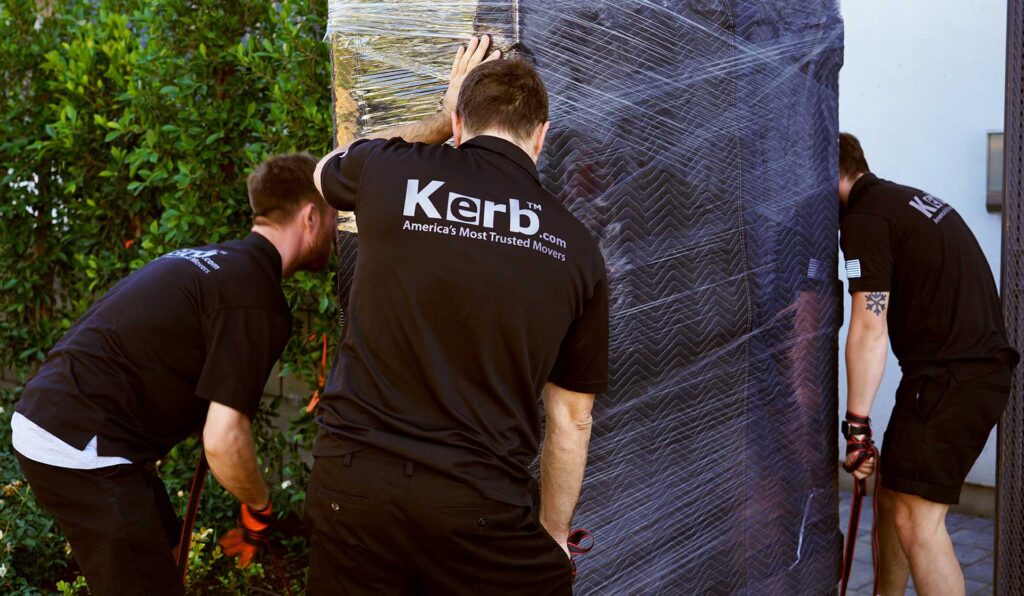Relocating to college is a significant change, often thrilling and scary at the same time. Most new students can’t immediately adapt to leaving their parents’ home and moving into a college dorm. However, the more you are prepared for the move, the easier this transition will be. Therefore, let us help you get ready for everything relocating to the dorm brings.

The Benefits of Moving Into a College Dorm
Life in dorms is often mentioned with a negative connotation – people usually point out the lack of privacy or space as the main characteristic of living in dorms. However, on-campus living comes with quite a few benefits that many tend to overlook.
For example, it’s easier to make friends after the move when you live in a dormitory than off-campus, and you won’t even have to worry about commuting due to the proximity of dorms. Also, note that security on campuses is always at a high level, so you’ll feel safer.
Additionally, you’ll be able to experience independence, but you won’t be suddenly left alone after relocating to a new state. Besides having a roommate to ask for tips, you’ll always be able to ask resident advisors, counselors, and other staff for assistance. Various organized activities, free internet access, and a clean environment are just some additional benefits you’ll be able to experience during your life in the dormitory.
#1 It Will Take Time to Organize Your Move and Pack Clothes and Other Items
One of the biggest relocation mistakes you can make is to take planning a move to another city too lightly. Just because you don’t have to relocate furniture doesn’t mean you can start with the relocation day preparations several days before the move. For the best relocation experience, brush up on your organizational skills. Think about all the cross-country moving tasks that lie ahead and start making your plan for relocating for the first time.
Make a Moving Into College Dorm Checklist
Checklists are essential parts of a good relocation organization. Make sure the following tasks are on it:
Checking your college's policies
Each school has different rules and regulations regarding its dorms, so it’s essential to be aware of what is and isn’t allowed before you get packing services or start boxing up on your own. By doing this, you will avoid many potential issues or conflicts down the road.
Starting with packing eraly
Do not wait until the last minute to start preparing – begin a few weeks in advance so you’re not rushed and stressed out. Make a list of what you have to bring and start boxing up little by little so it’s not overwhelming.
Creating a budget
College is expensive, so it’s crucial to create a relocation budget before the move. Determine how much money you have to work with and plan how you will spend it. This will help you stay on track and avoid overspending on things you want but don’t need.
Learning how to be independent
Relocating to another city alone means you’ll have to become more responsible. You’ll have to practice proper budgeting, start doing home chores, maybe learn how to change a tire, and so on. However, it will all be worth it because you’ll learn how to rely on yourself, which is an important part of becoming an adult.
#2 There Is a List of Things You Cannot Bring
Colleges usually have a list of prohibited items you’re not allowed to keep. For example, don’t be surprised if you’re not allowed to have candles, coffee pots, oversized refrigerators, network routers, WiFi printers, air conditioners, space heaters, or personal door locks. This list can differ from one school to another, so check your school’s banned items before you start to organize packing.
Consider Items Cross-Country Movers Can’t Move, as Well
If you’re planning on getting white glove moving services, note that there are also items that are prohibited from the back of the relocation truck. In many cases, long-distance movers will have similar prohibitions as colleges (no firearms, explosives, toxic materials, and so on). However, be sure you contact your white glove moving company and check which items they can’t load. For example, remember that cleaning supplies or perishable food are items that movers won’t move – but they can be kept in dorms.
Packing Services
When the time comes for us to relocate, we seek to find any possible help that will ease the whole process.
Auto Shipping
Are you looking for the best auto shipping company near you? Give Kerb a call, ask for a free quote and book our top-notch car transportation services.
Storage Services
Are you looking for storage services in your area? Kerb offers some of the best storage facilities in the country!
#3 You’ll Have to Get Used to a Much Smaller Space
According to Student Room Stay, Average rooms have approximately 230 square feet, usually shared between two or more students. Even if you’re used to living in a smaller space, you’ll need a certain period to adapt to living in a dormitory.
You can look for creative storage ideas to keep your small place looking bigger and more organized. However, it all comes down to being strategic about boxing up. Pack only relocation essentials and sentimental items. Other belongings you can leave at your parents’ house or decide to sell, donate or recycle.
Here are some necessities to think about:
- Bedding – pack sheets, blankets, pillows,
- Towels and laundry basket,
- Clothes, shoes, hangers,
- Medicine and first-aid kit,
- Toiletries, like shampoo, soap, toothbrush/toothpaste, deodorant, perfumes,
- Study supplies – ensure you pack books, pens, pencils, paper, highlighters, and things alike,
- Electronics and their chargers,
- Decorative items,
- Belongings that remind you of home (pictures, gifts, or decorations).
Living in the Same Room With a Stranger Can Be Challenging at the Start
Sharing a room with a friend is possible to arrange, but more often than not, freshmen are paired with people they haven’t met before. It can be strange, especially if you’re not an extrovert by nature. Of course, some students simply can’t get along, and a new environment and lack of space only add to it. If that happens to you, contact a resident assistant to provide a solution for the conflict.
However, conflicts can be avoided if you come up with an agreement with your roommate from the start. Explain to each other your preferences and needs, so you can both be comfortable in your new living space. Discuss study and sleeping habits, borrowing and visitation rules, temperature preferences, and so on.
If you want to learn more valuable tips on how to get along with a roommate, take a look at the video below:
#4 You Can Coordinate Your Packing List With Your Roommate Before the Move
To reduce long-distance moving costs and avoid your space being overfilled with countless belongings, you can contact your future roommate and come to an agreement – if you’re not against sharing, that is. One microwave, speaker, fan, television, printer, or vacuum is enough for the two of you, so there is no need to duplicate them. On the other hand, it will buy you more storage space and make your small room look less cluttered.
#5 Dorms Usually Have Quiet Hours
Most dormitories have so-called quiet hours, during which students are supposed to sleep, study or simply rest. It’s a good solution for those young adults easily distracted by the noise. Whether you’re one of them or not, use these periods to your advantage.
Learn if your dorm practices this quiet time and, if so, when, and then adjust your schedule according to it. On the other hand, try to be respectful to other students by not making loud noise during these periods.

#6 You May Have to Bring Your Own Relocation Equipment – and Some Help
It’s no secret that you’ll need assistance when the relocation day comes. For a local move, there will be no obstacles for your loved ones to assist you – but that’s only if you’re looking enough to live close to your future school.
On the other hand, an interstate move makes it hard for loved ones to be there for future freshmen. So, what should you do in that case? Hiring movers is the best solution to help you move efficiently, safely, and without additional relocation stress.
However, if it’s not possible, be sure you have all the right relocation equipment. Transporting your belongings a few stairs up may not seem like a lot, but note that you won’t be able to move everything you’ll bring in one trip to your floor. Additionally, you may not be able to park anywhere close to your building, which will make all the heavy lifting much harder. Therefore, bring the most suitable equipment for this case – a small cart or luggage carrier. This will allow you to move everything from your car to your room without making multiple trips.

#7 You’re Relocation Day Will Be Already Set (and Pretty Hectic)
Students who opt to rent an apartment off-campus can choose the relocation date – they can move a few months, weeks, or days before classes start. Freshmen relocating into dorms do not have that option. Since most colleges begin in the second half of August, count on move-in day being one to several days before.
Good Organization Will Be Your Best Friend on the Move-in Day
How long does it take to move into a dorm? Usually, it takes between two and four hours with all the meetings, events, and assignments. There is simply a lot to cover during your first hours on campus. That is why, although exciting, a move-in day can also be a little chaotic. So, how to survive this thrilling but hectic period? Here are some of the life-saving relocation tips for moving into a dorm:
Get there early
The earlier you arrive, the shorter the lines will be, and the more time you’ll have to settle in. Be sure you know your school’s policy on when you’re allowed to arrive – some schools allow students to move in a few days early, while others have one designated date.
Stick to the schedule
There is a high chance that you’ll be assigned a particular period during which you should unload your belongings. By sticking to this schedule, you’ll be able to unload your items quickly and continue with other activities.
Wear comfortable clothes
You’re going to be doing a lot of lifting and carrying, so make sure you wear comfortable clothes that you don’t mind getting dirty. Loose clothes or open-toe shoes should be packed in boxes, not worn during this period. Jeans and a t-shirt, on the other hand, are always a good choice.
Be prepared for the weather
Since you’ll be relocating in the summer, be prepared for the heat. Drink plenty of water and take breaks often. Additionally, high temperatures are one more reason why you should consider getting an early start.
Buy snacks and drinks
Relocating is an exhausting process, even more so when you have to wait in lines after a lengthy trip. Ensure you have plenty of snacks and drinks on hand to keep your energy up. Granola bars, fruit, and bottled water are all good options.
Ask for assistance
If you require help carrying something or don’t know where your room is, do not be afraid to ask others for assistance. There will be plenty of people around who are more than happy to assist you – from students to resident assistants and college staff.
Relax a little
Once everything is done and you’re settled, what to do when you first move into a dorm? Remember to relax and take a deep breath. Before you start decorating and socializing, take a look at what you’ve accomplished – and be proud of yourself.
For Smooth Moving Into a Dorm, Contact the Best White Glove Movers
With our guide and tips for living in a dorm, you can get a picture of what to expect after the move. However, if you want to move itself to be as stress-free as possible, consider getting a white glove moving service. Find the best high-end, reputable relocation company, and let professionals take care of all of your relocation needs while you focus on the big change ahead.





